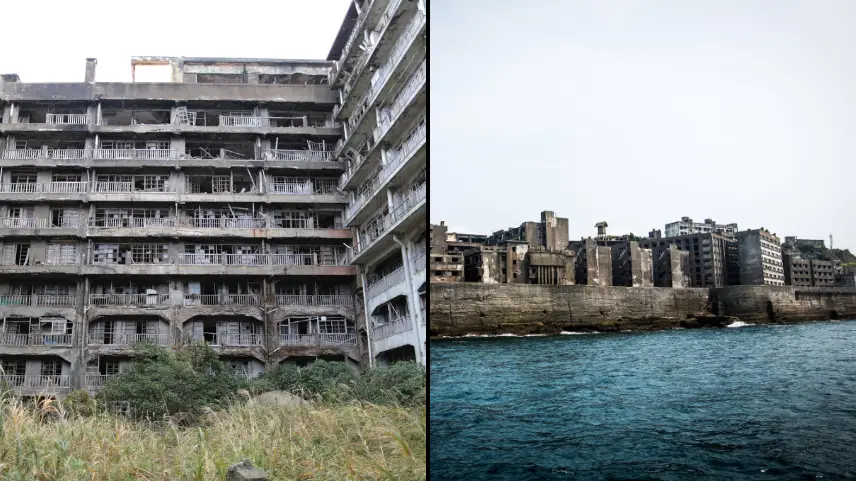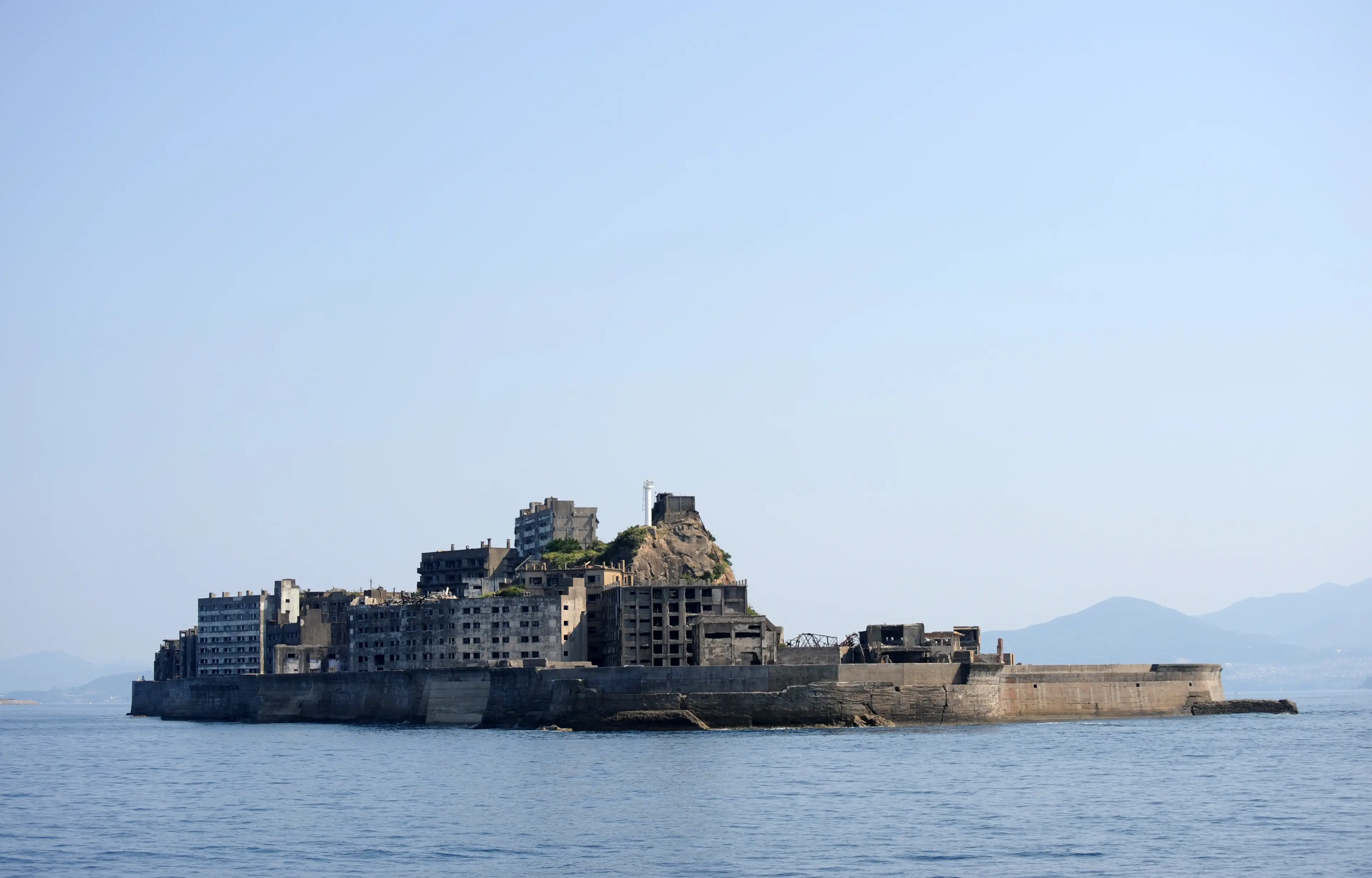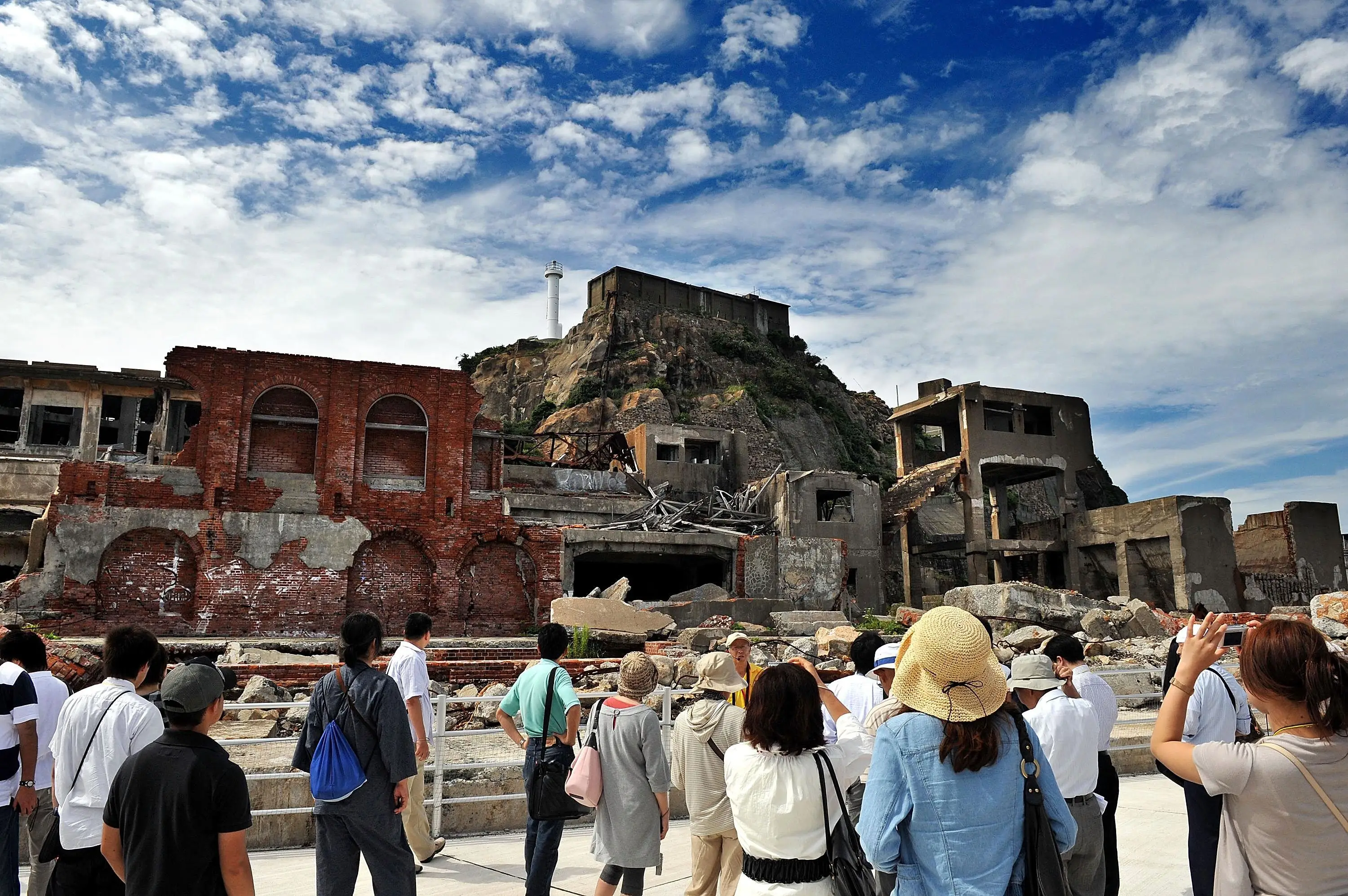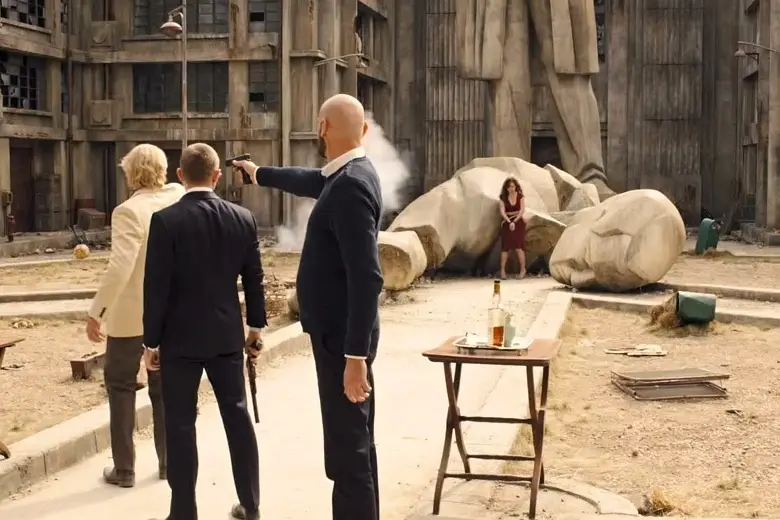
An island established in the 1800s has a very dark past.
Hashima Island is only 16-acres and sits just off the coast of the Japanese city of Nagasaki.
The island - sometimes referred to as Battleship Island - is known for its undersea coal mines which were largely operated during the industrialisation of Japan.

Advert
At its peak in 1959, it's believed that over 5,200 people lived on the tiny island - many of whom were conscripted Korean civilians and Chinese prisoners of war.
In 1930 until the end of World War II, these prisoners were reportedly forced to under extremely harsh conditions and weren't paid for their labour.
The Mitsubishi Group bought the coal mines in 1890 to provide fuel for the country's growing shipbuilding industry, and went on to construct apartments, a school, a hospital, a theatre and other facilities for miners and their families.

But this didn't change the fact that the miners were made to travel 3,000 feet below sea level in over 37°C temperatures each day, as per Business Insider.
With the gruelling working conditions in mind, its said that 1,300 workers tragically died from starvation, exhaustion and malnutrition.
Severe respiratory sickness was also a common killer on the island as a result of the sea air mixed with the fumes that came from the mines.
Eventually the coal on Hashima Island ran dry, sparking its closure in 1974.
50 years on, is stands uninhabited and filled with derelict buildings just 10 miles off Nagasaki's coast.
Those who survived working at Hashima often refer to it as 'hell island'.
Tomoji Kobata worked on the island for a year when he was 24 years old, and has since spoken of the 'backbreaking work' he and his fellow miners had to do.
Describing his role as 'one of the moles', Tomoji told The Guardian in 2015: "I mined coal and then helped break it up so that it could be taken off the island. It was backbreaking work, so I spent all of my free time sleeping."
While Tomoji voluntarily went on the island, Choi Jang-seop was one of the Korean miners who faced forced labour. He compared his time on the Hashima as being like prison.

"I virtually lived a prison life on Hashima," he previously told the Yonhap News Agency.
"I feel horrendous and heavy whenever I recall the time when I worked at the bottom of coal mines while only wearing my underwear."
The island reopened to the public in 2009 and has become a globally known attraction.
Several companies now offer tours around Hashima, where scenes from the James Bond movie Skyfall were filmed.
Topics: History, Travel, World News